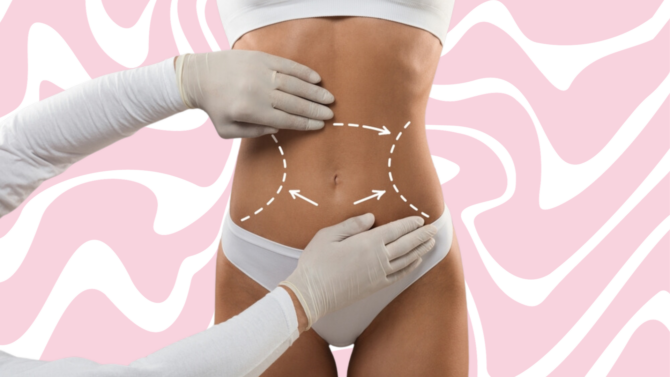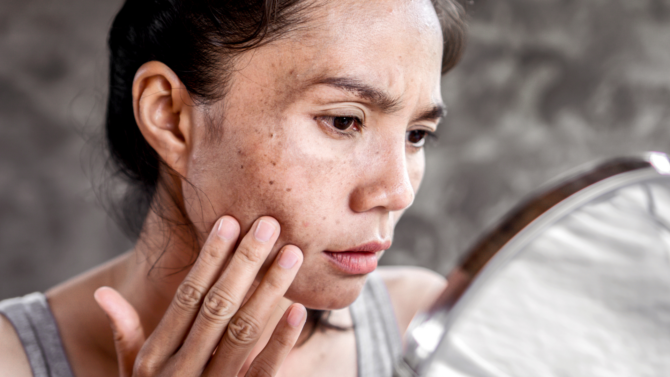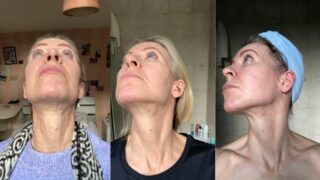There are lots of differing opinions in the tweakments world, but one thing the experts agree on is that safety during pregnancy and breastfeeding should never be compromised by aesthetic concerns.
However, exactly what is and isn’t safe for pregnant women when it comes to treatments and skincare ingredients is less immediately clear. We spoke to three TTG-registered practitioners for their definitive advice.
1. Injectable treatments need to be avoided
‘Sadly, injectable treatments are contra-indicated in pregnancy,’ says Dr Catharine Denning. ‘This is for a few reasons – the first and most important is that due to ethical reasons, clinical trials for safety of mother and baby cannot ethically be carried out. So, we have little idea of the effects that any injectable treatment may have on the foetus.’ While the likelihood is that most botulinum toxin A and hyaluronic acid-based injectables are likely to be safe, ‘Other considerations can’t be ignored, like that a pregnant person’s physiology is markedly changed, and so things like inflammatory and immune response is likely to be heightened,’ explains Dr Catharine.
‘As a result, we don’t know how this might affect the likelihood of potential complications such as inflammatory nodules or infection.’ There’s also a question mark over whether hyaluronidase, the drug used to dissolve HA-based filler, is safe during pregnancy, so for all these reasons, all injectable treatments should be avoided for the entirety of pregnancy and until six weeks after stopping breastfeeding.
2. … as do energy-based devices, but LED gets a green light
Energy-based treatments like ultrasound, radiofrequency, laser and IPL are also out. Again, ‘These treatments have not been trialled on pregnant women, and they should be avoided because skin sensitivities can change greatly during pregnancy,’ explains aesthetic nurse and independent nurse prescriber Mel Recchia. ‘The skin will potentially be more sensitive, with greater chance of adverse reactions.’ Not to mention, you don’t want to be doing anything that will increase your chances of developing melasma – a (harmless) pigmentation condition that is common during pregnancy. ‘One of the biggest problems with energy-based or heat treatments is affecting the pigmentation of the skin. Melasma can be exacerbated if heat or energy-based treatments are used,’ adds Mel.
But all is not lost – LED therapy is perfectly safe during pregnancy and is brilliant at soothing skin sensitivity and clearing pregnancy-induced acne: ‘LED is the only safe light therapy for use during pregnancy, as it doesn’t have the same light waves that may stimulate pigmentation [as other energy-based devices] and will not adversely affect any deeper parts of the skin.’
3. Skincare should be adapted
It’s a good idea to speak to your practitioner or seek advice for the first time when you find out you have a confirmed pregnancy. This is because some skincare ingredients are known to be dangerous to unborn babies. ‘Skincare routines should be reviewed when a patient finds out they are pregnant. Some ingredients like retinol and retinoic acid, when taken orally, are known to cause foetal harm,’ says Dr Anna Hemming.
As with injectables, ‘Being pregnant or breastfeeding is often in the exclusion criteria for medical trials, so as a result, most medication has limited understanding of the teratogenicity [the ability to cause harm] to an unborn child. Even when tretinoin medication is topically applied it is not possible to prove it is safe.’ Dr Anna advises stopping any retinol, tretinoin, retinoic acid and salicylic acid, which she says can ‘close one of the essential ducts in the foetus’s circulatory system later in pregnancy’. If acne is a problem, limited use of benzoyl peroxide may be permitted in severe cases, but again, talk to your aesthetic practitioner and GP.
3. Switch to other ingredients
Luckily, there’s much freer rein with skincare than tweakments during pregnancy and breastfeeding, aside from those ingredients previously mentioned. ‘Most other skincare ingredients are considered safe in low concentrations,’ says Dr Catharine. In lieu of a strong retinol, there are some effective, safe alternatives to tackle pregnancy-related acne and hyperpigmentation. ‘AHAs such as lactic acid are great at exfoliating off the top layer of skin to help prevent clogging of pores in acne, and to slough off superficial pigment in hyperpigmentation. Plus, lactic acid is a larger molecule than other AHAs like glycolic, and so is less likely to cause irritation in sensitive pregnancy skin.’
‘Azelaic acid is a bit of an unsung hero in skincare and replaces some of the actions that we revere in retinoids. It’s a great antioxidant, so helps prevent DNA damage from UV exposure and can help prevent pigment formation. It also helps control sebum production in acne, is anti-inflammatory, antimicrobial and helps prevent a build-up of the top layer of skin which can lead to pores being clogged,’ she says. Aside from lactic and azelaic acids, hyaluronic acid, vitamin C, niacinamide, and ceramides are all considered safe for pregnancy and breastfeeding.
5. Wait until post-partum to treat melasma
If you develop melasma during pregnancy, it’s generally advised to wait at least three months after delivery before treating it with tweakments. ‘Melasma can resolve on its own a few months after pregnancy, however, persistent melasma may benefit from laser/IPL treatments, but there should always be a three to six-month interval after giving birth to allow the hormones that stimulate pigmentation and melasma to settle,’ says Mel Recchia.
‘And if breastfeeding, wait six weeks after stopping before undergoing any treatments not recommended during pregnancy.’ When that time comes, she advises caution, as melasma is tricky to treat, and laser and energy-based treatments do have the potential to make it worse if not carried out appropriately. ‘Always have a patch test and go to an experienced practitioner who will do a thorough consultation,’ she says.
You can start the skincare portion of melasma treatment sooner though, and even incorporate some of those pregnancy-safe, pigment-fighting ingredients early on during pregnancy as a preventative measure. ‘If a patient is concerned about developing melasma, some prevention can be done by using azelaic acid, glycolic acid pads and peels, and vitamin C,’ says Dr Anna, ‘while deep skin peels and more intensive skincare involving retinol, hydroquinone and tretinoin are suitable only after breastfeeding has stopped. All treatment programs should be designed by a fully-qualified practitioner who can monitor your progress and ensure treatment is safe.’
The Tweakments Guide Takeaway
Lay off the tweakments and retinoids during pregnancy and breast-feeding, and take the advice of TTG practitioners as to which skincare ingredients - and which light therapy - will be best for you.
Join Our Mailing List
This is the best way to stay in the loop with our latest news and updates, including industry titbits and tailored offers.
Related Stories

Concerns
Where To Find The Best Advice From TTG’s Leading Practitioners
Have a burning question about tweakments and/or skincare? Premium spots for The Tweakments Guide Live may...

Concerns
Tone, Sculpt, Reduce: Our Favourite Body Contouring Tweakments
If you are struggling with stubborn fat and sagging skin that doesn’t want to budge even with a healthy...

Concerns
Try These Next-Gen Facials For Your Pre-Christmas Party Prep
From providing an instant skin glow to targeting fine lines and sun damage, the next generation of advanced...

Concerns
How To Treat Your Hyperpigmentation With Our Favourite Treatments
The clocks have gone back and the nights are getting colder – but at least there’s a light at the...







 The Tweakments Chatbot
The Tweakments Chatbot